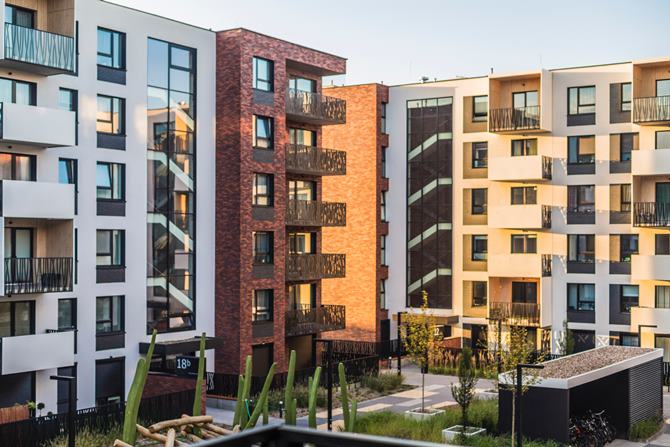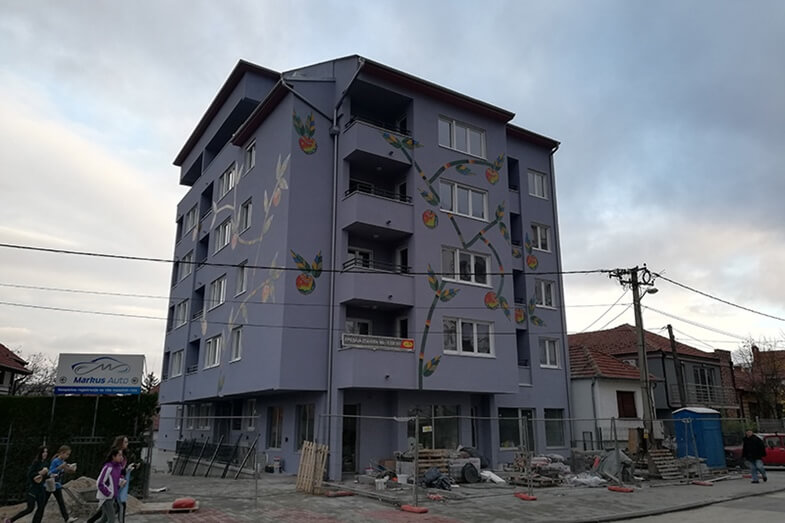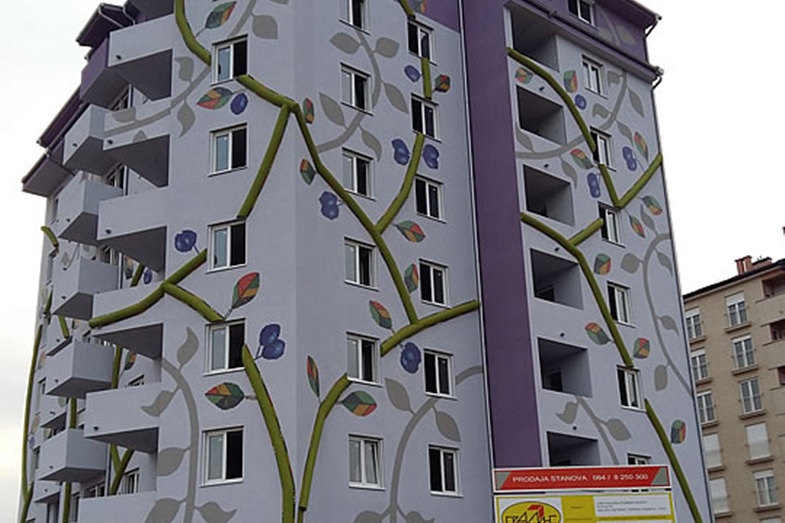
Stambena zajednica je pravno telo koje se formira kako bi se održavanje i upravljanje stambenim zgradama olakšalo i približilo svim vlansicima/korisnicima stanova.
Stambena zajednica je i odličan način za sprečavanje i/ili otklanjanje potencijalnih opasnosti u zgradi, a koje mogu nepovoljno uticati na život i zdravlje stanara, sredinu u kojoj žice, pa i privredu.
Stambena zajednica predstavlja jedan od elemenata održivog razvoja stanovanja i kao telo od javnog interesa regulisana je Zakonom o stanovanju i održavanju zgrada zgrada.
Svaka stambena zgrada se od 31.12.2016. upisuje u stambeni registar kao zajednica, dodeljuje joj se status pravnog lica i sve što se dešava uokviru nje, propisano je pravilima o održavanju stambenih zgrada.
Više o tim pravilima, kao i o tome šta je stambena zajednica i kako ona utiče na stanare – Grading otkriva u redovima ispod.
Šta je stambena zajednica i kako se formira
Stambena zajednica je organizacija svih vlasnika posebnih jedinica (stan, poslovni prostor, garaža, garažno mesto ili boks) stambene ili stambeno-poslovne zgrade.
Samo vlasnici mogu da se upišu u stambeni registar i formiraju zajednicu koja nadalje ima status pravnog lica. Kao takva, stambena zajednica mora da imati:
- Registrovan matični broj (izdat od strane Republičkog zavoda za statistiku)
- PIB (Izdat u Poreskoj upravi)
- Tekući račun (U bilo kojoj poslovnoj banci)
- Poslovni naziv
Skupština stanara i upravnik zgrade
Nakon što se obavi registracija stambene zajednice, određuju se njeni obavezni organi: Skupština stanara (stanari i vlasnici) i Upravnik zgrade.
Sednica skupštine održava se najmanje dva puta godišnje, a zakazuje je upravnik, kojem mandat traje četiri godine.
Na sastanku stambene zajednice se rešava nekoliko bitnih pitanja za stambenu zajednicu, poput:
- Izbora i/ili razrešenja upravnika, odnosno izbora profesionalnog upravnika
- Određuje se visina mesečnog troška za održavanje zgrade i troškova rada upravnika
- Određuju se naknade za investiciono održavanje zajedničkih delova zgrade: npr. popravka fasade, krečenje hodnika, zamena oštećenih pločica itd.

Kako se formira stambena zajednica
Kada je u pitanju stambena zajednica zakon je praktično olakšao automatizaciju procesa kao što je registracija stambene zajednice, odnosno njen upis u registar stambenih zajednica.
Čim (barem) dva stana (poslovna prostora ili garaža) u zgradi dobiju vlasnika, zgrada automatski postaje zajednica.
LINK: Zašto je stan uvek investicija broj 1?
Da bi ta stambena zajednica bila funkcionalna, vlasnici stanova (ili (pod)stanari) postaju deo skupštine stanara i biraju ko će biti upravnik zgrade, koji dalje vodi računa o pravnom i funkcionalnom delu “poslovanja”.
Pravo glasa u Skupštini stambene zajednice
Pravo glasa u skupštini ima svaki vlasnik posebnog dela zgrade. Ukoliko ste vlasnik više posebnih delova u zgradi, imate onoliko glasova koliko posebnih delova posedujete.
Izuzetak!
Samo vlasnici stanova i poslovnih prostora imaju glas. Ukoliko ste vlasnik garaže, garažnog mesta ili boksa – nemate poseban glas po osnovu svojine.
Šta ako je vlasnik stana “nedostupan” ili ne dolazi u “sednicu”?
Vlasnik posebnog dela stambene zgrade će se smatrati nedostupnim ukoliko se tri puta uzastopno ne odazove na sednicu Skupštine stanara, na koju je uredno pozvan, i da pri tome nije obavestio upravnika, odnosno stambenu zajednicu o izostanku.
Glas vlasnika koji je nedostupan ili nije prisutan se ne uračunava u “kvorum”, odnosno u ukupan broj glasova u postupku odlučivanja.
Poziv na sednicu stanara
Uredan način za pozivanje vlasnika na sednicu stambene zajednice izgleda tako što upravnik zgrade jasno istakne obaveštenje o sednici, na vidnom mestu u zgradi (obično hodnik, ulazna vrata, lift i sl.). Tada se prilaže dnevni red, mesto održavanja i satnica.
Kako stambena zajednica utiče na stanare
Činjenica je da se stanari ne odazivaju često na sednice stambene skupštine. Međutim, koliko god vam ove obaveze izgledale kao opterećenje i nešto na šta ne želite da trošite svoje vreme, sigurno ste saglasni sa tim da zgrada u kojoj stanujete treba da bude podnošljivo i prijatno mesto za život.
Nemojte ignorisati svoju stambenu zajednicu čiji ste deo i po zakonu, i po čistoj logici jer živite uokviru nje.
Stambena zajednica je tu radi očuvanja i unapređenja stambenog fonda kroz efikasno organizovanje održavanja.
Stambena zajednica čuva bezbednost u zgradama, i utvrđuje pravila kojima se vlasnicima ne ugrožavaju prava.
Kroz upravljanje stambenim objektom, upravnik zgrade preduzima mere radi održavanja zgrade, korišćenja finansijskih sredstava stanara, obezbeđivanja njenih delova i ultimativno povećanja vrednosti zasebnih jedinica i čitavog kompleksa (lokacije i same zgrade).
LINK: Kada tražite mesto za svoj novi dom lokacija je ključna!
Upravljanje zgradom i upravnik zgrade
Svaka stambena zajednica sačinjenu od stanara koji biraju upravnika zgrade iz redova svojih stanara ili se odlučuju da unajme izvršitelja kao što je profesionalni upravnik zgrade.
Tokom 2020. godine, u Republici Srbiji načinjene su poslednje izmene Zakona o stanovanju i održavanju stambenih zgrada. Njima su bolje određeni zadaci koje ima upravnik zgrade, poput:
- Održivog razvoja stanovanja
- Upravljanje, korišćenje i održavanje zajedničkih i posebnih prostorija zgrade
- Regulisanje postupka iseljenja i preseljenja
- Stambena podrška pri registracijama, uvidu u stambene evidencije i druga pitanja od značaja za stambenu politiku.
Poslovi upravljanja zgradom nisu nimalo naivan ili lak zadatak, i upravo zbog toga stanari i vlasnici vrše izbor među svojim redovima, i odaberu nekoga ko ima mogućnosti, znanja i vremena da obavlja složenu funkciju kao što je upravnik zgrade.
Zajednica može to da obavlja preko preko svojih ljudi, ili uz angažovanje profesionalnog upravnika zgrade. Više o tome šta vas čeka kao vlasnika stana, odnosno člana stambene zajednice možete pročitati i na sajtu Vlade Republike Srbije.







